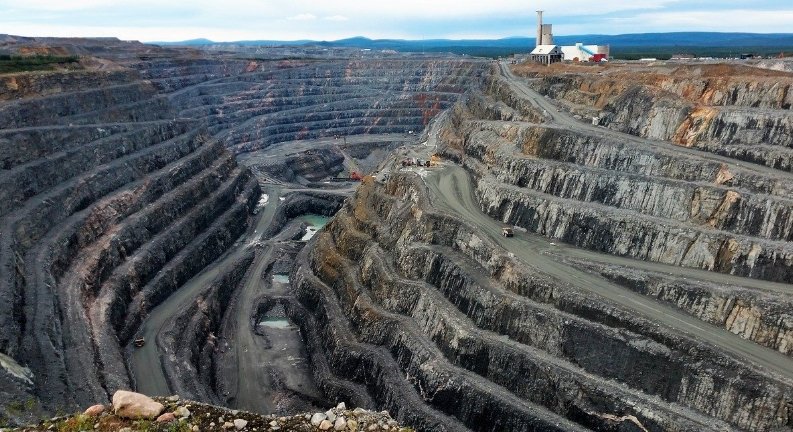Friends of the Earth Scotland has raised serious concerns over mining companies’ lack of communication with local communities regarding transition mineral mining exploration. Research across Aberdeenshire, Dumfries and Galloway, and the Highlands reveals that residents have often been unaware of mining plans until exploration activities were already underway. This lack of transparency has led to widespread frustration, with communities feeling “kept in the dark” by both the companies involved and their political representatives.
Mining for Transition Minerals: What’s at Stake?
Transition minerals such as lithium, cobalt, and nickel are essential for the production of renewable technologies like electric vehicles and solar panels, all of which are critical in the global transition away from fossil fuels. As the demand for these minerals surges, Scotland has become a target for exploration by mining companies. However, the environmental and social impact of mining operations—especially in ecologically sensitive areas—has been a growing concern.
Friends of the Earth Scotland’s research indicates that despite planning rules in Scotland requiring early and meaningful community engagement, mining companies have failed to consult with local residents in a transparent and timely manner.

Communities Left in the Dark
In Aberdeenshire, Aberdeen Minerals has been conducting surveys for nickel, copper, and cobalt near Ellon. The company is backed by Central Asia Metals, which has a controversial history, including a 2020 dam failure at its mine in Macedonia that caused toxic pollution to spill into local rivers. Despite the significance of the project, locals only learned about the mining activities after they had already begun.
In Gairloch in the Highlands, Canadian company Galantas Gold is exploring a vast area for zinc, copper, lead, silver, and gold. The site is in a protected area, the Wester Ross Biosphere, and is home to Loch Maree, a Site of Special Scientific Interest. Local residents have expressed frustration with the company’s lack of communication, and community councillors have voiced their concerns about the inadequate engagement efforts by Galantas.
Meanwhile, in Dumfries and Galloway, Australian-owned Walkabout Resources has been exploring the Blackcraig site near Newton Stewart for a variety of minerals, including gold and silver. Despite holding exploration licenses since 2018, local residents were only made aware of the plans in late 2021. The company, which went into administration in November 2024, has left residents feeling “let down” by both the company and local government representatives.
Lack of Support from Political Leaders
The research also reveals that local political representatives, including MPs, MSPs, and councillors, have largely failed to respond to the concerns of their constituents. Many residents who reached out to their elected officials about the mining explorations reported receiving no meaningful support or action. This lack of advocacy has further amplified local frustrations, with many feeling abandoned by their political leaders.
Impact on Communities and the Environment
The unaddressed concerns of communities and the lack of consultation about mining activities have sparked fears about the potential damage to both the environment and local ways of life. Residents in Dumfries and Galloway described the shock of seeing drilling rigs appear near their homes, with one local saying, “It was such a dereliction of duty” for the community not to have been informed sooner.
Tamsin Wake, lead researcher at Friends of the Earth Scotland, emphasized the need for transparency and the importance of ethical practices in mining, especially in light of the social and environmental harms associated with transition mineral extraction. She stressed that any mining activities must be conducted with full local consent and that companies must prioritize reducing demand and increasing the reuse of these materials.
The Call for a Fairer Transition
Kim Pratt, circular economy campaigner at Friends of the Earth Scotland, echoed these sentiments, calling for a transition that does not harm communities or the environment. She warned that the pattern of poor engagement seen in Scotland mirrors the experiences of other countries where transition mineral mining has led to environmental destruction and social conflicts. She called for communities to be at the heart of energy transition plans, with safeguards in place to limit the damage caused by extraction.
Local Voices: A Call for Action
A resident of Aberdeenshire shared their frustration: “The community doesn’t know what’s going on, and I think the council has a responsibility… The Scottish Government has a responsibility.” Similarly, a resident in Dumfries and Galloway described the shock of seeing drilling rigs near their home, saying, “It was such a dereliction of duty.”
The concerns raised by Friends of the Earth Scotland highlight the urgent need for mining companies to adopt transparent and ethical practices. As Scotland faces increasing pressure to meet its renewable energy goals, it is essential that local communities are not sidelined in the transition to a greener future. Ensuring that these communities have a voice in the decisions that affect their land, health, and environment will be key to building a fair and sustainable energy transition.


















